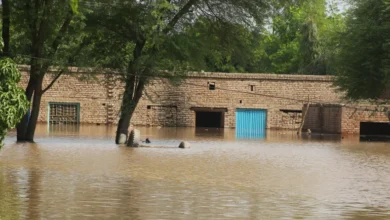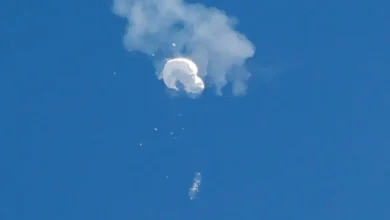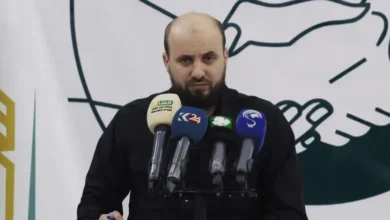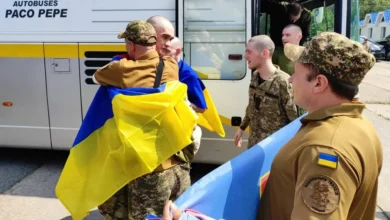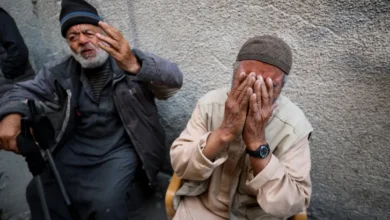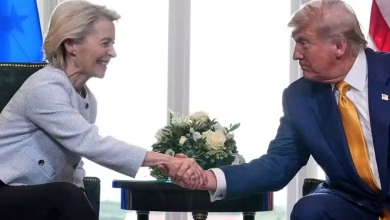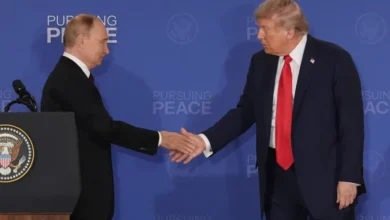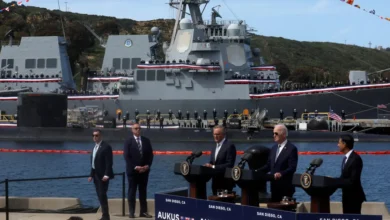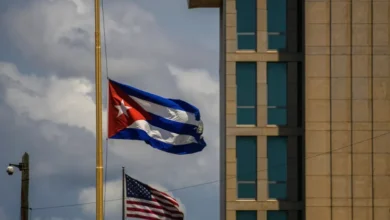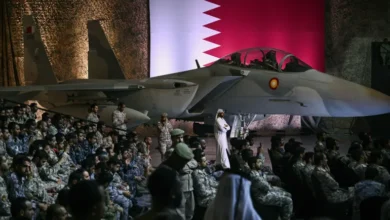‘He was like a father to us’: Hezbollah supporters mourn Hassan Nasrallah
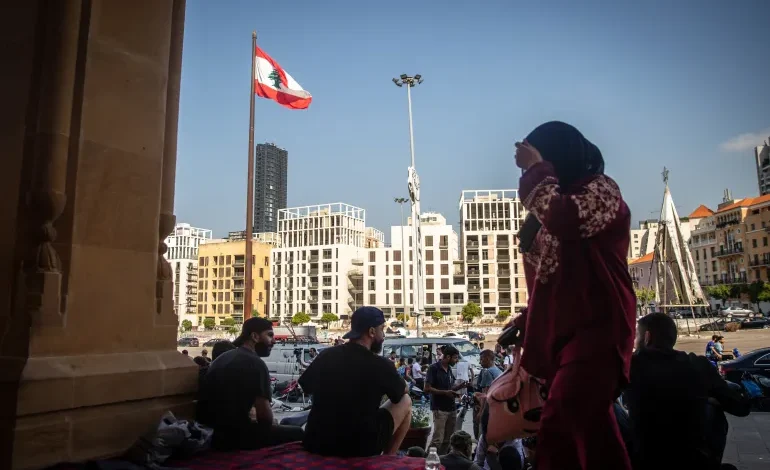
On Friday evening, Mariam* was in her apartment with her teenage daughter and mother when her building began rumbling and shaking. Agonising screams and the buzzing of Israeli warplanes soon followed.
Israel had just launched a major air attack that killed Hezbollah’s leader Hassan Nasrallah, as well as an unknown number of civilians in Dahiyeh, the southern suburb of Lebanon’s capital Beirut.
Shortly after the strike, Israel called on thousands of civilians to “evacuate” from Dahiyeh, claiming they were living near Hezbollah operation centres.
Mariam quickly packed a few bags of clothes and fled to downtown Beirut, where she is now sleeping on the steps of a mosque with hundreds of other people displaced from her community.
But while Israel has upended her life, she said that nothing compared to the anguish of losing Nasrallah.
A brother, a father
Nasrallah became Hezbollah’s leader after Israel assassinated his predecessor, Abbas al-Musawi, in 1992. Al-Musawi, his wife and five-year-old son were killed by an air strike on their home.
Once Nasrallah took over, he quickly began expanding Hezbollah from a rebel movement to one of the most powerful armed groups in the world as well as a formidable bulwark against Israeli aggression.
Under his stewardship, Hezbollah liberated south Lebanon from Israel’s 18-year occupation, lending him the status of a hero throughout the region.
His charisma and shrewdness made him one of the most respected – and feared – leaders in the Middle East.
He then became a polarising figure – in Lebanon and the region – after Hezbollah intervened in Syria’s civil war to rescue President Bashar al-Assad from a pro-democracy uprising that quickly turned into an armed conflict after al-Assad’s forces turned their guns on protesters, leading to the deaths of hundreds of thousands.
Throughout the war, the Syrian government and Hezbollah committed atrocities, according to news reports and rights groups.
These reports damaged Nasrallah’s popularity across the region but his most fervent supporters stood by him out of fear that nobody else would be able or willing to protect Lebanon from Israel.
Many Lebanese Shia Muslims are now mourning a man they call a “brother” and even a “father” to their people.
In downtown Beirut, displaced families from Dahiyeh described Nasrallah as a “martyr” who gave his life to stand up to Israel.
“I just want to listen to his voice again. He was like a father to us. He wasn’t just a politician,” said Nivine, a Hezbollah supporter and Dahiyeh resident who has been uprooted by the strikes.
